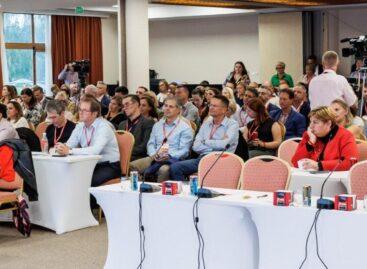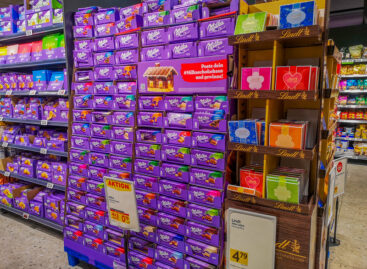New structure, old strengths
An interview with Attila Sófalvi, general manager of Mars in Hungary, the Czech Republic and Slovakia, the company’s key account head Réka Nagy and associate relations manager Márta Krivai.

This article is available for reading in Trade magazin 2025/10.
– Why did Mars opt for the global-level separation of business units last year? How does the new structure contribute to a more focused development of units?
S. A.: – Mars previously operated in Europe with two types of structures: in a segment system where independent organisational units dealt with individual product groups such as confectionery or pet food, and there was also a multisales model – this was used in Hungary too – where all four segments (chocolate, chewing gum, pet food, and food) were handled simultaneously. This dual structure served us well for a long time, but the external economic environment has changed a lot by now. At the same time Mars has also restructured in Europe: we introduced different segment strategies in line with segment objectives and expanded into new product categories and channels. As a result we have transformed our two-model hybrid organisation into a segment-driven system, which has made our operations more efficient and is driving investment and growth across Europe.
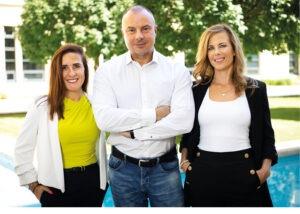
Márta Krivai, associate relations manager, Attila Sófalvi, general manager of Mars in Hungary, the Czech Republic and Slovakia and Réka Nagy, key account head
– How did your role and regional responsibilities change after the separation?
S. A.: – Before the separation our region consisted of 5 countries, but after October 2024 we became part of a much larger region comprising 10 countries. In addition to Hungary it is Slovakia and the Czech Republic that belong to me and the challenges are very similar in all three countries.
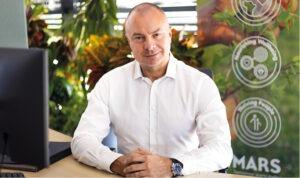
Attila Sófalvi: „We can confidently say that we have created — and have been successfully operating for quite some time — a new model that convincingly combines the strengths of our previous structures”
– How has all this affected the operations of Mars Magyarország?
S. A.: – Our operations in Hungary have changed in that our previously unified team of representatives serving all four segments is now specialised according to segments, strengthening our focus and increasing efficiency in serving our partners.
– How do you see the prospects for the domestic FMCG market in your segments?
S. A.: – Consumer confidence picked up only moderately in the middle of the year, with households spending more cautiously and focusing on saving, which is also reflected in our sales. We are offsetting these negative effects by introducing new products: the successful launch of Snickers Creamy in the chocolate segment and Orbit Refreshers in the chewing gum category have contributed significantly to the sales of our brands and categories. We will continue to enter new categories with our products, offer new flavours and create new opportunities for use.
Segment-driven operations require rapid decisions. Réka Nagy points out what is worth focusing on, for instance the cash register zones.
– As a female leader how do you feel in a field traditionally considered masculine?
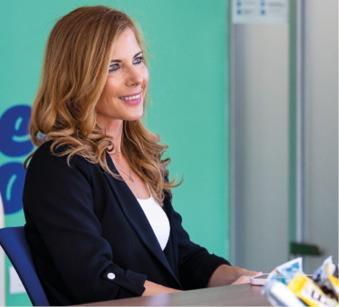
Réka Nagy, key account head
N. R.: – For fourteen years I paved the way for cosmetics and beauty care brands, so most of my colleagues and partners were women. It was a bit of a shock when I realised how male-dominated the sales department at Mars is. At the same time it was reassuring and empowering to see how happy team members were to have a female leader.
– What is the most pressing challenge on the sales side at the moment?

Réka Nagy: „Our strategy is to focus on what we truly have influence over and where our strengths lie”
N. R.: – Last year we underwent a major organisational transformation and everyone was trying to find their place; today the processes and roles are clearer, but the beginning was really difficult. Fluctuations in cocoa prices represent a serious exposure and the domestic economic environment has forced retail chains to make strategic changes, which directly affect us.
– What are the most specific challenges on the market today from a partner’s perspective?
N. R.: – Mars has a strategy that focuses on what we can really influence and what we are good at. At the moment this isn’t the rapid, widespread expansion of our portfolio, but rather our visibility in stores. Since we are experts of the checkout zone in stores, many retail chains get in touch with us to develop the self-checkout area together.
– Have you made any changes to your team? How do you support members – and how is diversity reflected at Mars?
N. R.: – My team is basically stable: most of the members have been with the company for 15-20 years. It is a strong and experienced community and my main focus now is to fill each day with a positive, energetic attitude, which strengthens motivation and helps shift thinking towards accepting change.
– How do you maintain a balance between your work and your private life?
N. R.: – When Mars approached me, during the selection process I emphasised that first and foremost I am a mother, so flexibility is important to me. I was told that this wouldn’t be a problem – and it hasn’t been, because Mars trusts and supports me.
A stable, trust-based organisation is necessary for a good store performance. Márta Krivai talks about HR strategy, mentoring and the future.
– How do you see the role of HR within Mars – how important is it and how much does HR’s opinion matter?

Márta Krivai, associate relations manager
K. M.: – I joined the Mars team three years ago and I have been working with the same enthusiasm ever since, because the company represents values that I can fully identify with. Employees are very important for the company, so HR doesn’t just have a supporting but also a shaping role.
– How are initiatives that support development – such as mentoring – integrated into everyday life?

Márta Krivai: „At Mars, a strong success-oriented mindset is present, which encourages colleagues to learn, grow, and advance — and the HR processes are aligned with this approach”
K. M.: – We have mentoring programmes operating at several levels. There is an initiative in which talented individuals above a certain position can choose their own mentor. Plus anyone can apply – regardless of their position – to get in touch with someone they would like to learn from and with whom they can work effectively.
–How do you identify talent and how is the Best Next Move integrated into the annual goals?
K. M.: – At Mars there is a strong success-oriented mindset that encourages colleagues to learn, develop and move forward. In addition to the annual performance review, managers can designate employees who they want to pay special attention to. We encourage colleagues to think in terms of the Best Next Move. This also needs to be reflected in the structure of annual goals: besides performance indicators, the focus should also be on areas for development.
– Looking to the future, what challenges should HR be prepared for that will influence the performance of Mars and companies in general?
K. M.: – I would like to highlight three main factors. The first is new generations entering the labour market, the second is the growing value of learning and development, and the third is the current economic environment and external factors – for instance the rapid technological changes. (x)
Related news
Mars Commits €18.5m To Sustainable Rice Sourcing
🎧 Hallgasd a cikket: Lejátszás Szünet Folytatás Leállítás Nyelv: Auto…
Read more >Price Battle Around Milka Chocolate in Germany
🎧 Hallgasd a cikket: Lejátszás Szünet Folytatás Leállítás Nyelv: Auto…
Read more >Related news
A cup of creativity…
🎧 Hallgasd a cikket: Lejátszás Szünet Folytatás Leállítás Nyelv: Auto…
Read more >(HU) Pro-Duck Kft.
🎧 Hallgasd a cikket: Lejátszás Szünet Folytatás Leállítás Nyelv: Auto…
Read more >Iglo and Findus in new hands
🎧 Hallgasd a cikket: Lejátszás Szünet Folytatás Leállítás Nyelv: Auto…
Read more >


